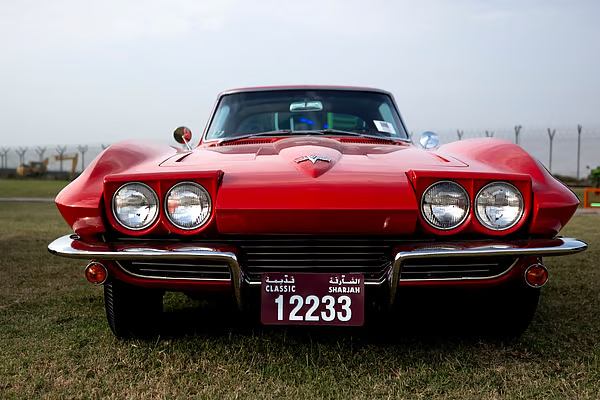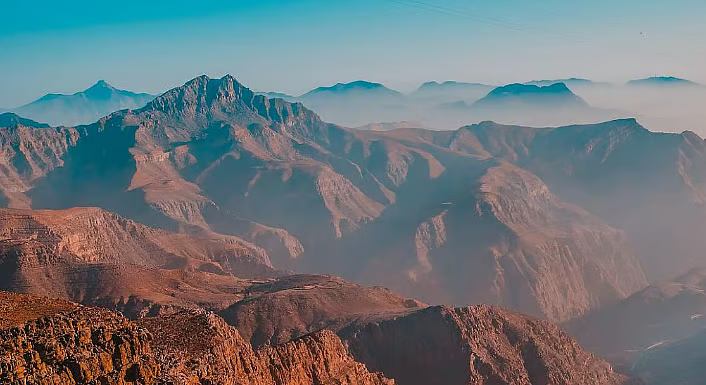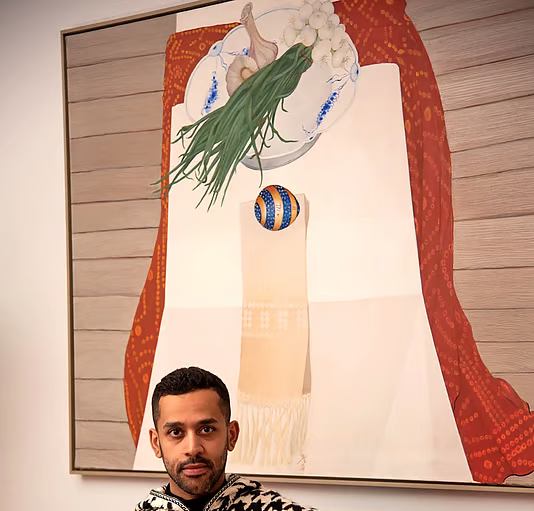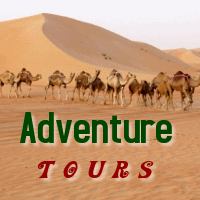Emirati Culture
Emirati people
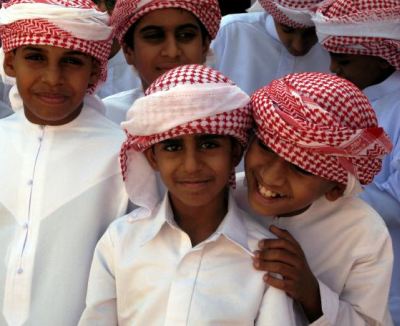 Emirati people is a name given to the people of UAE these include those who hold
United Arab Emirates nationality. Ethnically Emiratis share their culture,
descent and the Arabic variety of the United Arab Emirates (UAE).
Emirati people is a name given to the people of UAE these include those who hold
United Arab Emirates nationality. Ethnically Emiratis share their culture,
descent and the Arabic variety of the United Arab Emirates (UAE).
Emiratis, including the ruling dynasties of the emirates of Abu Dhabi and Dubai, trace their origins to the Bani Yas clan of Arabia. However, people outside of the Bani Yas clan, such as Baluchis and immigrants from Iran's Bastak region and Bahrain, have been gradually integrated into Emirati society. A tiny number of South Asian, African and people from other races have intermarried with Emiratis
Populations with Emirati ancestry, the result of emigration, also exist in other parts of the world, most notably in the Middle East, Europe and North America. Population estimates are seen to have a very small diaspora.
History in Emirates
UAE is a recently created country with a past history that is shared by the neighboring empires such as Persia, Rome, Ottoman empire, and foreign powers such as Portugal and England. The earliest inhabitants were the Neolithic people, 5500 B.C. Significant control, and commerce was established by the successive Persian empires. During the Sassanid era, Persians controlled most of the lands around the Persian Gulf.[3] The Romans also exerted influence on the Persian Gulf. Envoys from the Islamic prophet Muhammad saw the islands convert to Islam around 630 C.E. The Portuguese would then battle the then dominant force in the Persian Gulf, the Safavid empire and control UAE for the next 150 years. During the 16th century, the Ottomans took control of the Islands and UAE was known as the "Pirate Coast." By the 19th century the British empire had taken complete control of the land then called "Trucial Sheikhdom."[3] Trucial Coasts were under the contorl of the British empire until the 1960s when the first crude oil was discovered. Consequentially, with weakening British contorl, the "Trucial States" became the United Arab Emirates (UAE) around 1972
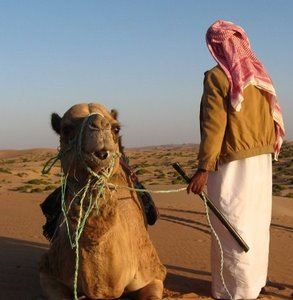 The term Emirati comes from the Arabic word emir (Arabic: أمير) which means
commander or leader. Today Each of the seven emirates is ruled by an emir, whose
citizens (generally) belong to his clan. The Bani Yas tribe forms the basis of
many clans within the United Arab Emirates. Sub-clans of the Bani Yas include
The term Emirati comes from the Arabic word emir (Arabic: أمير) which means
commander or leader. Today Each of the seven emirates is ruled by an emir, whose
citizens (generally) belong to his clan. The Bani Yas tribe forms the basis of
many clans within the United Arab Emirates. Sub-clans of the Bani Yas include
Al Bu Falah (Abu Dhabi)
Al Bu Falasah (Dubai)
Al Qawasim (Sharjah, Ras Al Khaimah)
Al Ali (or Al Mualla) (Umm Al Quwain)
Al Sharqiyan (Fujairah)
Al Nu'aim (Ajman)
Another definition of "Emirati" is Arabs with origins in the UAE.
Emarati Dress
While the Islamic dress code is not compulsory, unlike neighboring Saudi Arabia, many of the older and young Emarati men prefer wearing thawb or a dishdash, an ankle-length white shirt woven from wool or cotton while the minority of women wear abaya, black over-garment covering most parts of the body.[9] This attire is particularly well-suited for the UAE's hot and dry climate. Western-style clothing is also fairly popular, especially among the youth.
Etiquette is an important aspect of UAE Culture and Tradition. The visitors, whilst in the UAE are expected to show manners and etiquette. Recently many expatriates have not been respecting the laws, and have been arrested, for not wearing enough clothing at beaches, some even being completely nude.
Before the discovery of oil, pearling formed a crucial part of UAE's economy. Pearl fishery, known as ghaus, suffered decline after the advent of Japanese pearl farming. However, the UAE pearl industry laid the foundation of its rich maritime history. Dhows, large wooden ships made from teak wood imported from India, became an indistinct part of the countries maritime fleet and dhow building is still practiced in this Persian Gulf state and perform an important role of trade between countries like Iran, India, and Eastern Africa.
Literature and poetryThe main themes in Emirati poetry for Arab Poets range from satire, chivalry, self-praise, patriotism, religion, family and love, and could range from descriptive to narrative.
Poetry in the United Arab Emirates has a great influence on culture, being a Persian Gulf Arab country were poetry has been part of since the dawn of time. The style and form of ancient poetry in the UAE was strongly influenced by the 8th century Persian Gulf Arab scholar, Al Khalil bin Ahmed, which followed sixteen metres. This form underwent slight modification (Al Muwashahat) during the period of Islamic civilization in Andalucia (Spain), where “the line or bait adhered to the two hemistitches form, each with an equal number of feet, all the second hemistitches ending in the same rhyming letter and sound throughout the poem.”1 The indigenous Arabic poetry form, however, was not spared from western influence; sometime in the 20th century prose poetry started to make their way into the local literary scene.
Ibn Majid who was born between 1432 and 1437 in Ras Al Khaimah was an iconic poet. Coming from a family of successful sailors, Ibn Majid has a total of 40 surviving compositions, 39 of which are verses.
The greatest luminaries in the UAE literary realm during the 20th century, particularly for Classical Arabic poetry, were Mubarak Al Oqaili (1880–1954), Salem bin Ali al Owais (1887–1959) and Ahmed bin Sulayem (1905–1976). Three other poets from Sharjah, known as the Hirah group, also thrived during the 20th century including Khalfan Musabah (1923–1946), Sheikh Saqr Al Qasimi (1925–1993), an ex-ruler of Sharjah, and Sultan bin Ali al Owais (1925–2000). The Hirah group’s works are observed to have been heavily influenced by the Apollo and romantic poets.
The United Arab Emirates is a part of the Persian Gulf khaleeji tradition, and is also known for Bedouin folk music. Liwa is a type of music and dance performed mainly in communities which contain descendants of East Africans.[13] During celebrations singing and dancing also took place and many of the songs and dances, handed down from generation to generation, have survived to the present time. Young girls would dance by swinging their long black hair and swaying their bodies in time to the strong beat of the music. Men would re-enact battles fought or successful hunting expeditions, often symbolically using sticks, swords or rifles. Hollywood and Bollywood movies are popular in Dubai. The UAE has an active music scene, with musicians such as Nancy Ajram, Amr Diab, Diana Haddad, Tarkan, Aerosmith, Santana, Mark Knopfler, Elton John, Pink, Bon Jovi, Pink Floyd, Shakira, Celine Dion, Coldplay, and Phil Collins having performed in the country. Kylie Minogue was paid 4.4 million dollars to perform at the opening of the Atlantis resort on November 20, 2008. The Dubai Desert Rock Festival is also another major festival consisting of Heavy metal and rock artists.
Sports
Dubai Tennis Championships 2006Football is the Popular National Sport of the United Arab Emirates. Emarati Soccer clubs Al-Ain, Al-Wasl, Al-Shabbab ACD, Al-Sharjah, Al-Wahda, and Al-Ahli clubs are the most popular teams and enjoy the reputation of long-time regional champions.[16] The great rivalries keep the streets of the UAE energized as people fill the streets when their favorite team wins. The United Arab Emirates Football Association was first established in 1971 and since then has dedicated its time and effort to promoting the game, organizing youth programs and improving the abilities of not only its players, but of the officials and coaches involved with its regional teams. The U.A.E. football team qualified for the World Cup in 1990 - with Egypt it was the third consecutive World Cup with two Arab nations qualifying after Kuwait and Algeria in 1982 and Iraq and Algeria again in 1986. The UAE also recently won the Gulf Cup soccer championship held in Abu Dhabi January 2007.
Cricket is one of the most popular sports in the UAE, largely due to the expatriate population from the Indian subcontinent. Sharjah Cricket Association Stadium in Sharjah has hosted 4 international Test matches so far.[19] Sheikh Zayed Stadium and Al Jazira Mohammed Bin Zayed Stadium in Abu Dhabi also host international cricket. Dubai has two cricket stadiums (Dubai Cricket Ground No.1 and No.2) with a third, 'S3' currently under construction as part of Dubai Sports City. Dubai is also home to the International Cricket Council. The United Arab Emirates national cricket team qualified for the 1996 Cricket World Cup and narrowly missed out on qualification for the 2007 Cricket World Cup.
Other popular sports include camel racing, Falconry, Endurance riding, and Tennis.[
Emarati Food
Emirati cuisine is a blend of many Middle Eastern and Asian cuisines.
The modern diet of the United Arab Emirates (UAE) is cosmopolitan, featuring dishes from around the world. A lot of people confuse Levantine food as being Emirati, but shawarma, hummous, tabbouleh, and mixed grill are all recent additions and do not do justice to the "soul food" that makes up the Emirati menu.
Due to harsh desert conditions, the traditional food of the United Arab Emirates uses a lot of meat, cereals and dairy. Vegetables are difficult to grow and are not strongly featured in the diet. Traditional dishes include Ma'louba, Margooga, Harees, Machbous, Arsee'ah, Fireed, Jisheid and Mishwy. Meats traditionally used were chicken or small fowl, such as Houbara bustards, and goats. As camels are highly prized for their milk and transporting ability, the eating of camel meat is normally reserved for special occasions.
The dishes are usually like stews, as everything is often cooked in a single pot. Saffron, cardamom, turmeric and thyme are the core flavors used in Emirati cookery. The introduction of rice to the diet came when the traders moved to the region. Leaves from indigenous tress, such as the Ghaff were also used to stuff small birds, releasing their flavor during the cooking process.
Breakfast in the UAE usually features breads like ragag, khameer and chebab, served with cheese, date syrup, or eggs. These were made over a curved hot plate, resembling a stone, which would have been used by the Bedouins. Balaleat is another dish, but its advent again with the traders, who introduced pasta.
Sweet options include luqeymat, a deep fried ball of pancake batter that is rolled in sesame seed and then drizzled with date syrup. Other desserts include khabeesa, which is flour bread crumbs blended with sugar, cardamom and saffron or bethitha, a semolina blended with crushed dates, cardamom and clarified butter.
At the close of the meal it is usual to be served with a red tea infused with mint, which aids the digestion. Other traditions to the meal include a welcome with dates and gahwah (Arabic coffee), which are offered on arrival and are kept available through the guests visit.
Food
Seafood has been the mainstay of the Emarati diet for centuries. The United Arab Emirates cuisine is a reflection of a great Arabian heritage and vast exposure to civilizations over time. Muslims are prohibited from eating pork so it is not included in Arab menus. Meat, fish, and rice are the staple foods for the Emirian cuisine. Lamb and mutton are the more favored meats, then goat and finally beef. Popular beverages are coffee and tea which can be supplemented with cardamom, saffron, or mint to give it a distinct flavor.
Alcohol is generally only served in hotel restaurants and bars (but not in Sharjah). All nightclubs, and golf clubs are permitted to sell alcohol. Specific supermarkets may sell alcohol, and pork, but are sold in separate sections.
Dishes forming part of the Emarati cuisine:
Kabsa
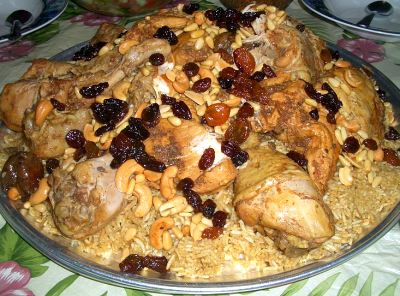 Kabsa (Arabic: كبسة) is a family of rice dishes that are served mostly in
Saudi Arabia — where it is commonly regarded as a national dish — and the other
Arab states of the Persian Gulf. Kabsa, though, is believed to be indigenous to
Yemen. In places like Qatar, the United Arab Emirates, Bahrain and Kuwait the
dish is popularly known as majbūs (Arabic: مجبوس) or machbūs (Arabic: مكبوس),
but is served mostly in the same way.
Kabsa (Arabic: كبسة) is a family of rice dishes that are served mostly in
Saudi Arabia — where it is commonly regarded as a national dish — and the other
Arab states of the Persian Gulf. Kabsa, though, is believed to be indigenous to
Yemen. In places like Qatar, the United Arab Emirates, Bahrain and Kuwait the
dish is popularly known as majbūs (Arabic: مجبوس) or machbūs (Arabic: مكبوس),
but is served mostly in the same way.
These dishes are mainly made from a mixture of spices, rice (usually long-grain basmati), meat and vegetables. There are many kinds of kabsa and each kind has a uniqueness about it. Pre-mixed kabsa spices are now available under several brand names. These reduce preparation time but may have a flavour distinct from traditional kabsa. The spices used in kabsa are largely responsible for its taste; these are generally black pepper, cloves, cardamom, saffron, cinnamon, black lime, bay leaves and nutmeg. The main ingredient that accompanies the spices is the meat, such as chicken, goat, lamb, camel, or sometimes beef, fish, and shrimp. In chicken machbūs, a whole chicken is used. The spices, rice and meat may be augmented with almonds, pine nuts, onions and raisins. The dish can be garnished with ḥashū (Arabic: حشو) and served hot with daqqūs (Arabic: دقوس) — home-made tomato sauce.
Meat for kabsa can be cooked in various ways. A popular way of preparing meat is called mandi. This is an ancient technique, whereby meat is barbecued in a deep hole in the ground that is covered while the meat cooks. Another way of preparing and serving meat for kabsa is mathbi, where seasoned meat is grilled on flat stones that are placed on top of burning embers. A third technique, madghūt, involves cooking the meat in a Pressure cooker.
Preparation
The meat or fish is first grilled or barbecued after being marinated, but sometimes the marinated meat is browned with some onions along with spices, then water is added and the liquid drained off to add to the rice, the meat is browned further and served. The rice is then cooked in meat stock with various spices and onion and placed in a mound with the meat on top.
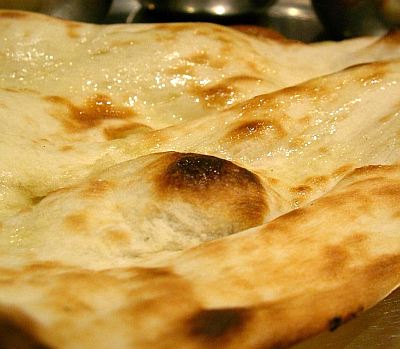 Yeast Bread
Yeast Bread
Falafel
Shawarma
Kebab
Sheep
Al Majboos
Camel Milk
Masgouf
Harees
Al Salona
Al Madrooba
Fish
Camel Meat
Al Khabeesah
Al Khanfaroosh
Raqaq (flat)
Al Jabab Bread
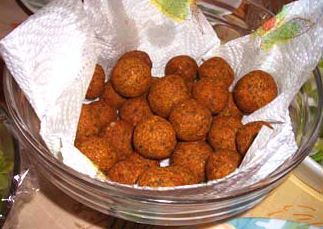 Falafel ( /fəˈlɑːfəl/; Arabic: فلافل, [falaːfil] ( listen)) is a ball or
patty made from ground chickpeas and/or fava beans. Falafel is usually served in
a pita, which acts as a pocket, or wrapped in a flatbread known as lafa. The
falafel balls are topped with salads, pickled vegetables, hot sauce, and
drizzled with tahini-based sauces. Falafel balls may also be eaten alone as a
snack or served as part of a meze.
Falafel ( /fəˈlɑːfəl/; Arabic: فلافل, [falaːfil] ( listen)) is a ball or
patty made from ground chickpeas and/or fava beans. Falafel is usually served in
a pita, which acts as a pocket, or wrapped in a flatbread known as lafa. The
falafel balls are topped with salads, pickled vegetables, hot sauce, and
drizzled with tahini-based sauces. Falafel balls may also be eaten alone as a
snack or served as part of a meze.
Generally accepted to have first been made in Egypt, falafel has become a dish eaten throughout the Middle East. Falafel is also often considered a national dish of Israel.[1] The Copts of Egypt claim to have first made the dish as a replacement for meat during Lent. The hearty fritters are now found around the world as a replacement for meat and as a form of street food.
Dash through Dubai By Anthon Garcia (Gulf News)
Where to stay in Dubai By by Neha Pandey-Benjamin
Looking for ways to escape the blistering summer heat in Dubai? Been to Ski Dubai and the ice rink already? Don't despair. We have picked out some indoor activities that are a little bit out of the box indoor options.
Where to haggle for the best
Dubai buys
Brush up on those haggling skills. You're going to need them to negotiate for
the best prices in Dubai. BY Sangeetha Swaroop
Diera Souq The Spice market of Dubai a traditional bazaar with exotic spices and other stuff
Dubai Malls some great places to shop and see which you dont find in the tourist books.
Writing a Wrong an interesting article about writing on middle East
Emarati Culture a detailed look at the culture of UAE
Content-type: text/html